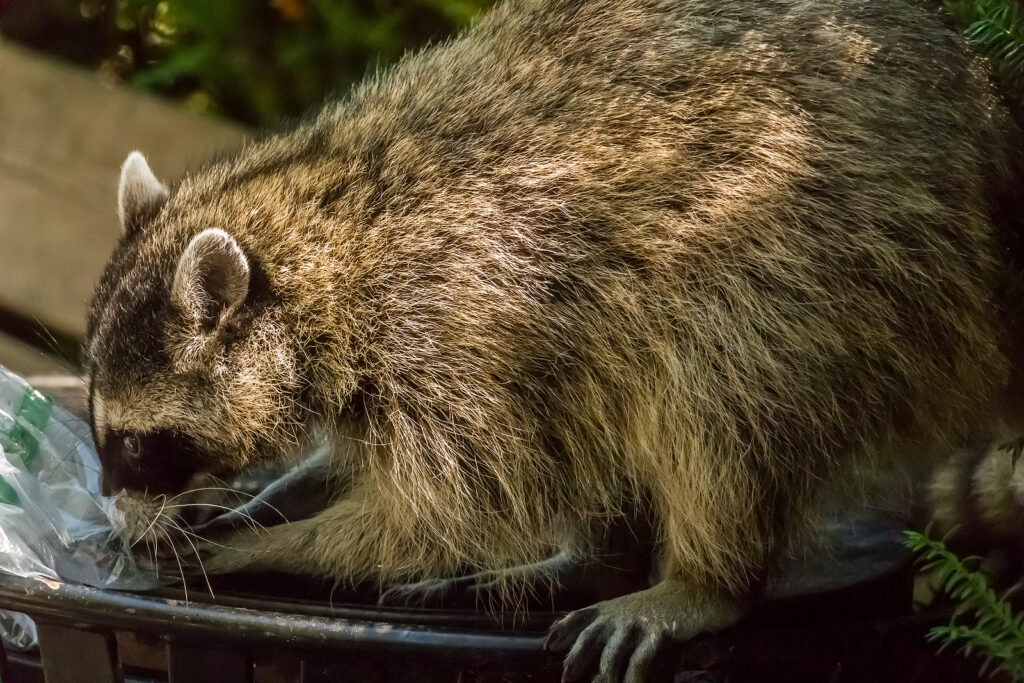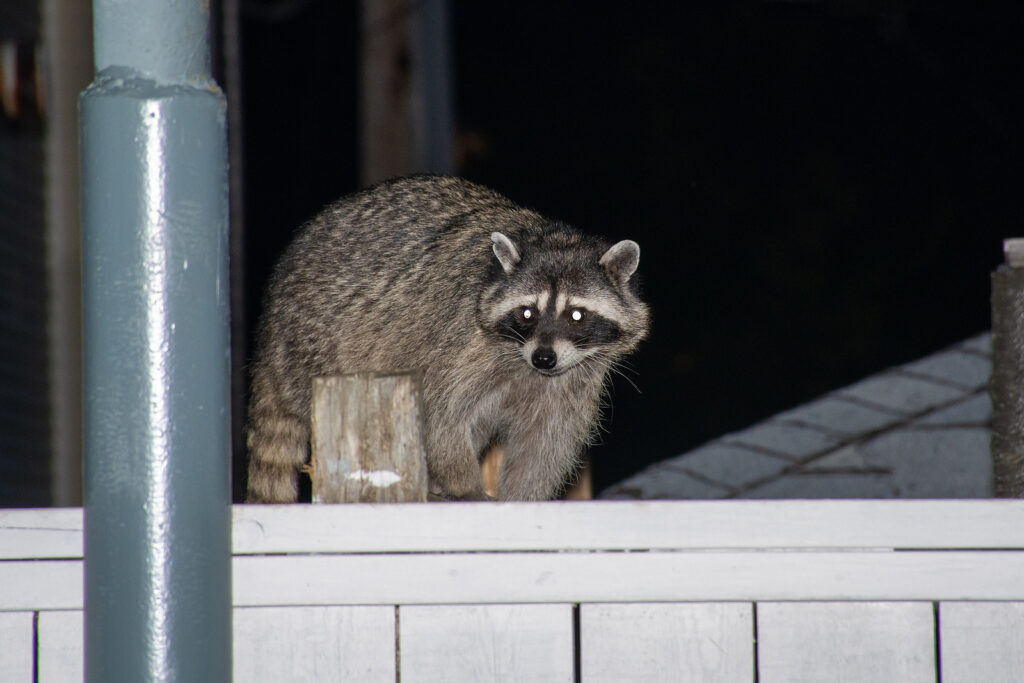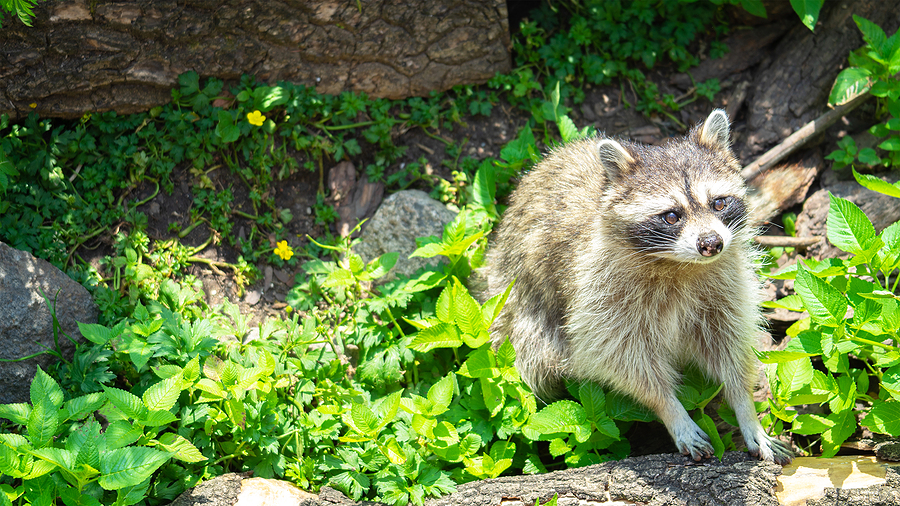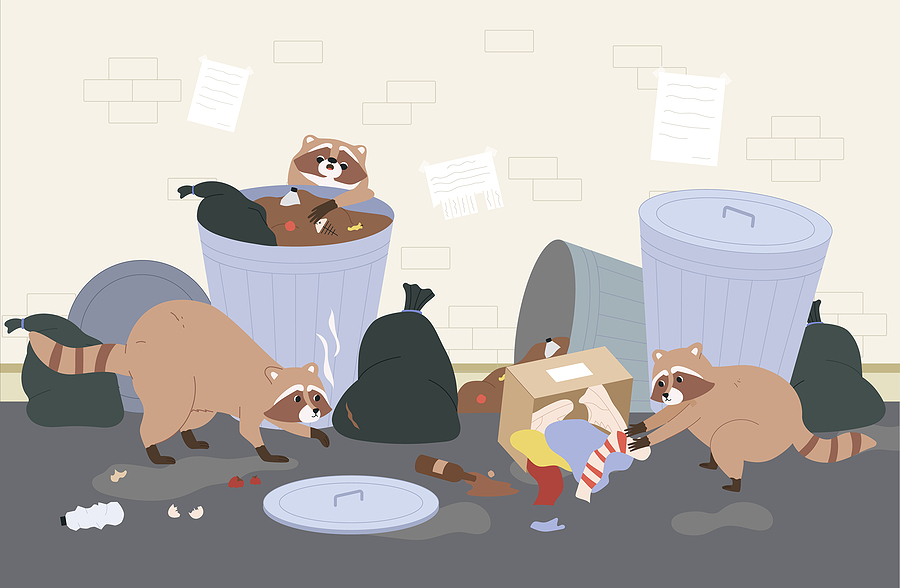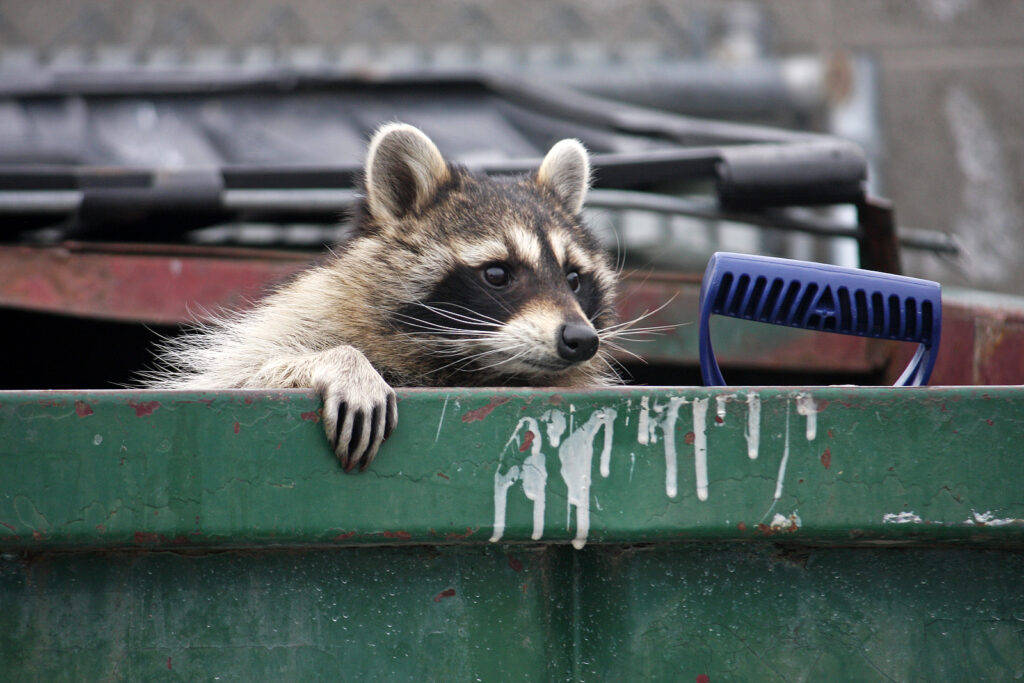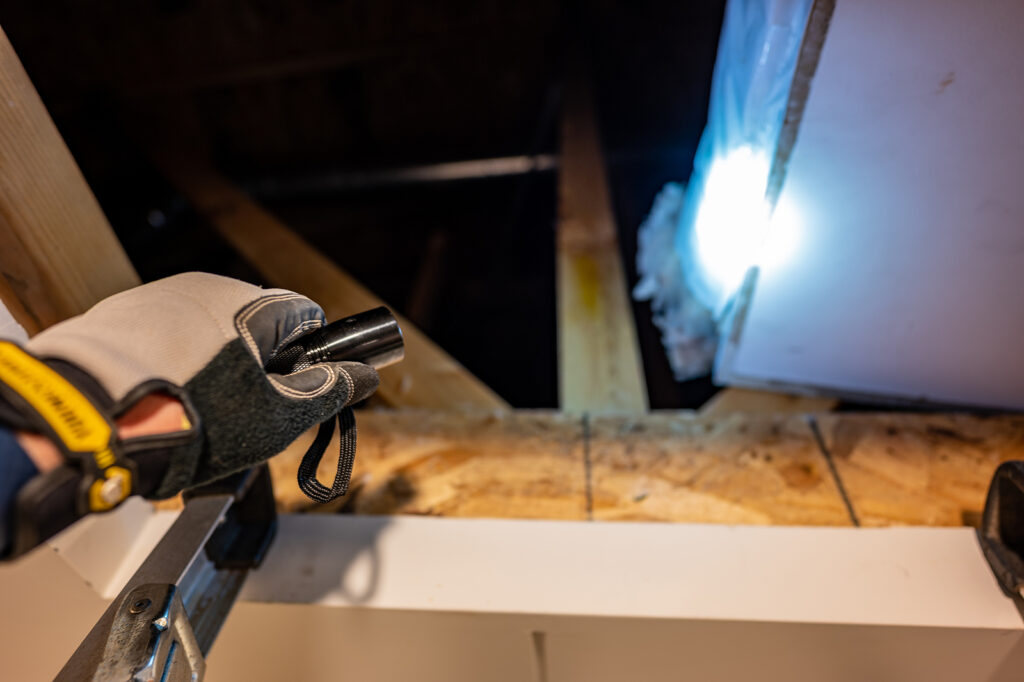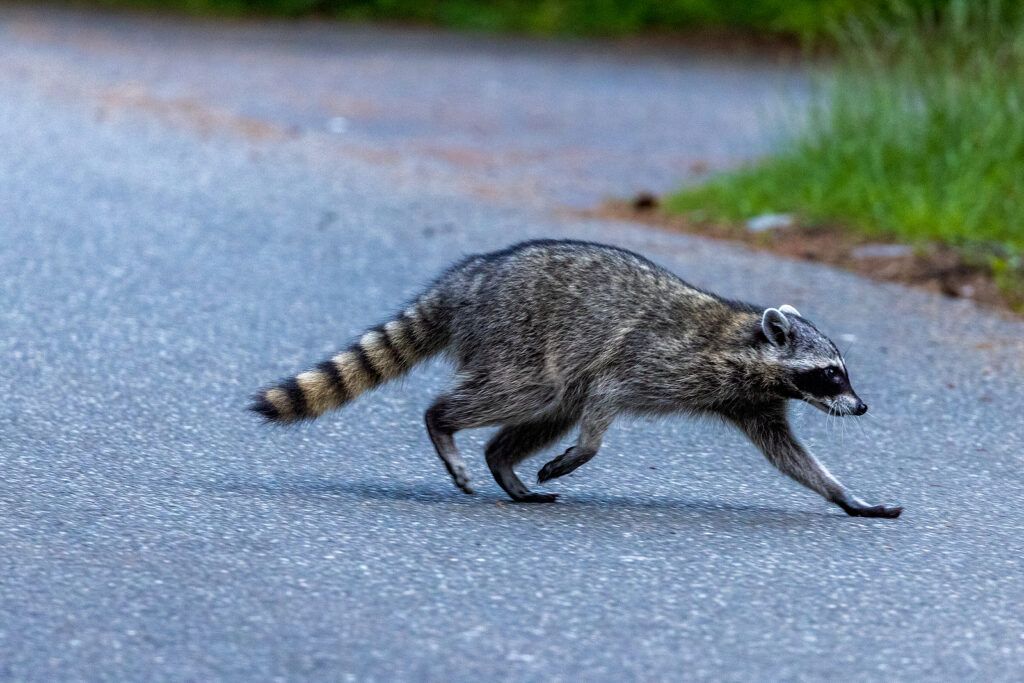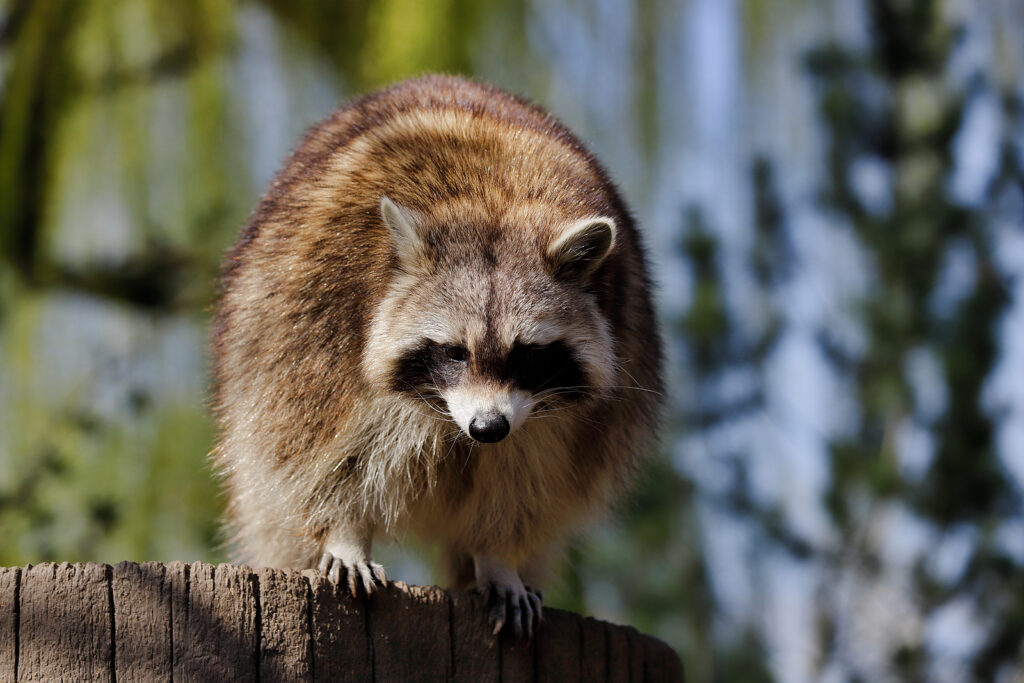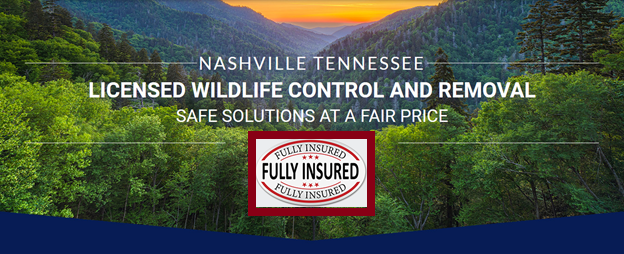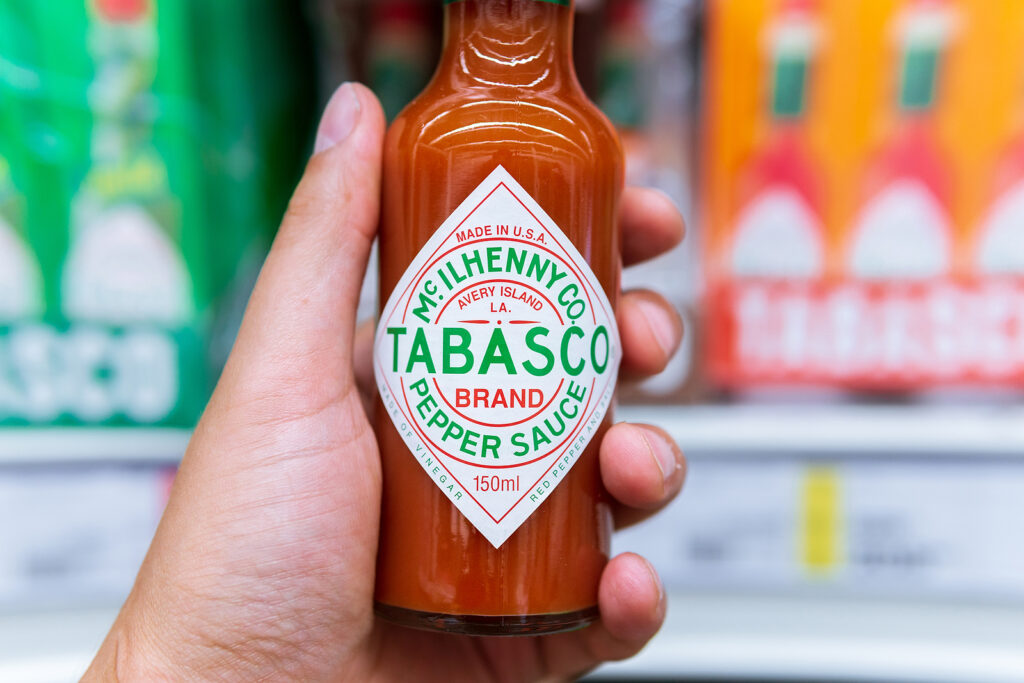The nightly ruckus of overturned trashcans, the morning mess of scattered garbage, and the constant threat of disease—no, it’s not a post-apocalyptic scenario; it’s the tale of raccoons ransacking your business’s dumpsters. If you’re a business owner, store manager, property manager, or landlord, chances are you’ve encountered this issue. But fear not, in this comprehensive guide, we’ll explore how to tackle the nuisance of raccoons in dumpsters effectively.
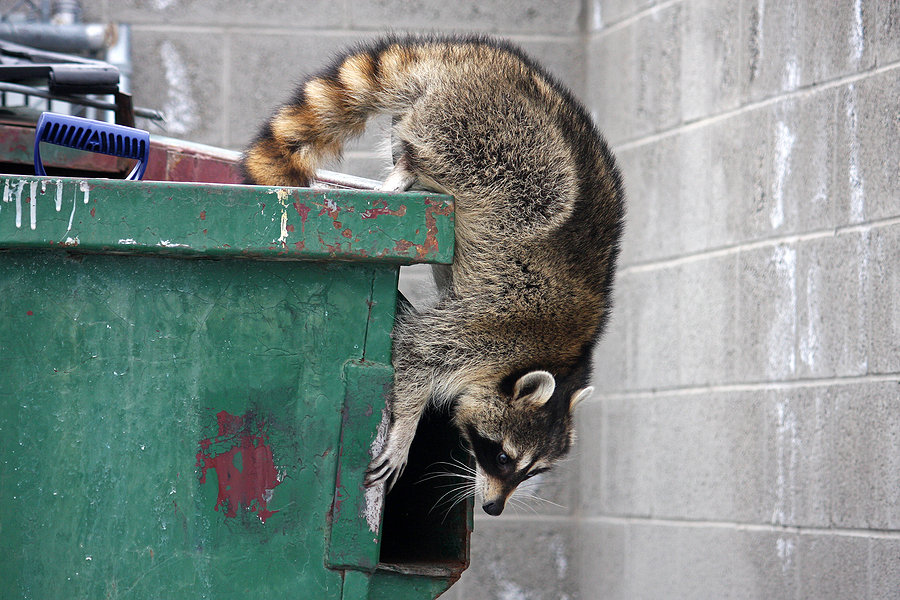
Understanding Your Nuisance Raccoon Problem
Before donning your raccoon battle armor, it’s vital to understand the adversary. Raccoons are intelligent, agile creatures with a particular affinity for human waste. These nocturnal bandits can effortlessly scale fences, open latched bins, and even solve simple locking mechanisms to reach their treasure trove. The problem goes beyond mere inconvenience; raccoons pose risks of spreading diseases such as rabies, leptospirosis, and raccoon roundworm. They can also cause structural damage, tipping over heavy bins and leaving a mess that can attract even more pests.
The Behavior of Raccoons
Raccoons are opportunistic omnivores, which means they’ll feast on just about anything—including your trash. Known for their dexterous paws, sharp claws, and curious nature, they’ll explore dumpsters in search of food. Their persistence in acquiring a food source turns them into frequent, unwelcome guests around commercial properties.
Risks and Damages Caused
The mess left behind by raccoons in dumpsters isn’t just unsightly; it can harbor bacteria and other pathogens. Their waste, once it contaminates a space, turns it into a potential health hazard. Beyond the health risks, raccoons trying to access your trash can cause structural damage to your property. From broken lids and hinges to potentially tempering with your property’s electrical systems, the risks extend far beyond the garbage they scatter.
Raccoon Proofing Measures
The best offense is a good defense. In this section, we’ll explore how to fortify your dumpsters to keep raccoons out.
Securing Dumpsters
Physical barriers are the first line of defense. This can include heavy-duty locks, metal bars, or even cylindrical guards like “raccoon rollers” that prevent them from gripping on the edge. It’s essential to inspect your dumpsters for any vulnerabilities, such as loose hinges or gaps, and ensure they’re in good working condition.
Using Animal Deterrents
Beyond simple locks, consider employing deterrents that play on a raccoon’s senses. There are plenty of homemade or commercially available solutions that emit smells or sounds that raccoons find unpleasant. Common options include ammonia-soaked rags, motion-activated lights or sprinklers, and ultrasonic repellents.
Regular Building Maintenance
A clean dumpster is less appealing to raccoons, so a regular cleaning schedule is important. Implement protocols for staff to ensure the area around the dumpster is free from food scraps and debris that might attract wildlife.
Dealing with Raccoon Infestations
Despite your best efforts, infestations can still occur. Here’s the battle plan for when the raccoons breach your defenses.
Safest Coon Removal Method
If you’re dealing with raccoons on your property, remember to never approach or attempt to remove them yourself. Instead, contact local wildlife authorities or licensed trappers who can safely and humanely relocate the raccoons. Traps should be checked regularly to avoid undue stress on the animals.
Work with Professionals
Professional wildlife removal services understand local regulations and know how to handle raccoons safely. They can also provide valuable advice on how to prevent future infestations based on the behavior of raccoons in your area.
Legal Considerations
Laws regarding the removal and relocation of wildlife vary by location. Always be sure to consult local ordinances and regulations before taking any action against raccoons in dumpsters. Violating these laws can result in hefty fines.
Conclusion
Raccoon infestations in dumpsters are not an uncommon issue for businesses, but they can be effectively managed with proactive measures and swift, humane action. It’s important to stay vigilant and address the issue as soon as it arises to protect the health and safety of your customers and employees, as well as the integrity of your property. With a combination of deterrents, regular maintenance, and professional support, businesses can reclaim their dumpsters from these crafty critters and maintain a clean, safe environment for all.
Do you need help getting rid of raccoons in your dumpsters and around your business lot? Contact Smoky Wildlife Control at 615-610-0962 for TWRA licensed and insured commercial raccoon removal and control in Nashville, Tennessee and beyond. We also work with many other types of wildlife and serve both residential and commercial clients.
Related Posts:
Outsmarting Raccoons: Your Ultimate Guide to Raccoon Control
3 Effective Strategies For Keeping Raccoons Out of Your Trashcans
Essential Facts About Nuisance Raccoons

